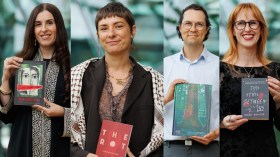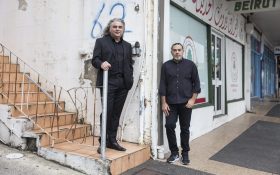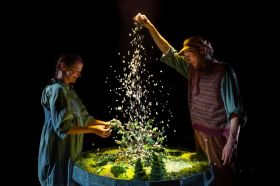Given the pressure on students to secure a well-paid job as soon as they complete a degree, it’s little wonder than the cautious if well-meaning advice of parents, teachers and career advisors often takes precedence over following one’s own heart.
Unfortunately, the predictable outcome of such a situation is students who find themselves trapped in a course that may well lead them to safe and secure work, but which neither stimulates nor satisfies them.
If you’re getting cold feet about the course you’ve chosen, it’s not too late to change your preferences now, rather than spending the next three years wishing you’d studied fine art or acting instead of law.
Thankfully, changing your course preferences is easy; most tertiary institutions now provide a range of seminars, workshops and hotlines to assist applicants with the process.
Here, teachers, current students and staff from around educational institutions around the country offer advice about following your heart and choosing the course that’s right for you.
Jacqueline Cornforth, MFA student at NIDA
‘My experience is that you definitely have to study something that you’re passionate about, something that you love or you’re really interested in. I did my undergraduate at QUT in Fine Arts Dance and I honestly got through that course because I love dance and I love performing and I loved everything about dance as an art form.
‘I think your love and passion for whatever topics that you pursue will ensure that you do it wholeheartedly. If you’re dedicated then nine times out of 10, you’ll probably complete it. So my advice would be to find something you’re interested in or love, and follow that. And it doesn’t have to actually be when you’re 17 or 18 – these things take time and I think it’s important to remember that things change and success means different things to different people. You just have to figure out what that means to you and then follow your heart.’
Read: ‘Control over our stories’ – dancing into cultural advocacy
Dr Billy Griffiths, Lecturer in Cultural Heritage and Museum Studies, Deakin
‘Studying what you love is an immensely rewarding experience. What we try to do with our course is both keep that passion – that passion for heritage – alongside the vocational skills that will allow you to find a job in this profession. We try and pair those together so it’s a very practical education, which is hopefully rewarding intellectually, but also opens up employment options and opportunities.’
Read: Whose heritage is it anyway?
Anton Mazandarani, Marketing Manager, WAAPA
‘We are seeing automation and AI increasingly replace even what we previously considered to be safe white-collar jobs. One thing all successful entrepreneurs, inventors and engineers have in common is creativity. Something AI will never fully emulate. By embracing your desire to create, by following your passion into an institution like WAAPA, you are not only following your heart but you are setting yourself up for a world of possibilities. It is truly inspiring to see the diverse array of professions across so many sectors in which our graduates end up.’
Read: WAAPA celebrates 40th anniversary with epic performance program
Wendy Gray, Head of Industry Program, AFTRS
‘These days none of us are going to have one career for our whole life, we’re going to have two or three careers as we go through our lives. To say that you’re just going to do one thing for your whole life that is going to make you lots of money is a pretty outmoded way of thinking. The people who are generally happiest from their working life, from what I’ve observed, seem to be people who are doing something that they’re passionate about. And that starts with studying something that they love.
‘So certainly speaking from AFTRS’ point of view, the people that come here come because they’re passionate about telling stories and creating fabulous content. They don’t come here to become rich or have a secure job. Because sure, there are some people who do really well in our industry and have consistent work forever and make millions of dollars but that’s just the minority, really. People come and work in our industry because they love it, it’s a wonderful industry to work in, they have stories they’re passionate about telling and they tend to be pretty happy doing that.’
Read: Combining creativity with business skills for screen industry success
Anthony Wood, Global Managing Director, Shillington Education
‘We have seen so many people over the years come to Shillington because they were unhappy in their job and go on to have successful and fulfilling creative careers after graduating. Fear can be one of the greatest things stopping people from having a better future, but we say face the fear and do it anyway. Life is too short to fret over things that might only exist in your head. Design can truly change your life.’
Read: Start earning as a designer in just three months
Associate Professor Rick Chew, Director, Federation University’s Arts Academy Ballarat
‘My advice to students who are under pressure to put aside their passion and enroll in a course of study with a clearly defined career trajectory is to look at the research that is emerging about the predicted future of work.
‘Whilst it’s true that much of the repetitive, routine work will increasingly become the province of AI, this in turn opens up the important question of what cannot be mechanised. According to Deloitte, we are transitioning from a work culture “of hands to heads to hearts“. The jobs of the future are increasingly likely to require skills of the heart; “the interpersonal and creative roles that will be hardest of all to mechanise”.
‘The workplace of the future will need authentic storytellers, creative thinkers, people who are trained in effective communication and collaboration. This raises the question of how universities will evolve their practices and course offerings to meet the demands of future employers in regard to yet-to-be defined jobs.’






